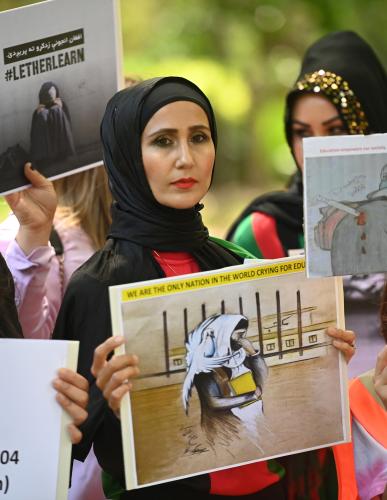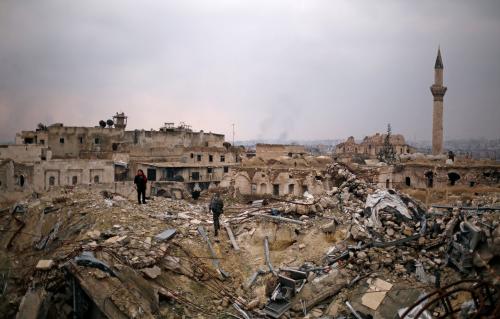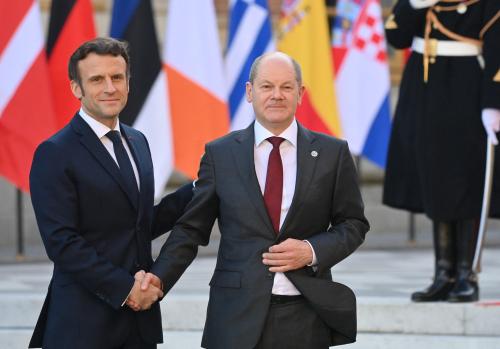Among those deliberately targeted by suicide bombers in Baghdad last week were relief workers of the International Committee of the Red Cross, two of whom lost their lives. That attack followed the deadly bombings of the United Nations office, in which more than a dozen staff members were killed, including the top U.N. envoy, Sergio Vieira de Mello. But it is not just in Iraq that relief personnel are at risk.
Since 1992, 213 U.N. civilian staff members have been killed in 45 countries by “malicious acts,” according to the latest reports of the secretary general. Most were delivering food, medicine and shelter and helping to reconstruct war-torn countries. Another 270 staff (both civilian and military) have been taken hostage in a total of 27 countries; in addition, 34 staff members are currently in detention.
Most of these incidents have occurred in 14 countries and territories, only one of whose governments has ratified the U.N. Convention on the Safety of United Nations and Associated Personnel. The convention came into force in 1999 and makes it a crime to assault staff carrying out their duties. (The countries and territories are Angola, Afghanistan, Burundi, Cambodia, Ethiopia, Georgia, Iraq, Kenya, Kosovo, Rwanda, Somalia, Sudan, Uganda and the West Bank/Gaza.)
The Security Council has called on states to ensure that such crimes “do not remain unpunished.” But only in 24 cases have governments actually arrested persons responsible for the death of U.N. civilian personnel, even though in many cases, “the killers are known to the Member States,” according to the secretary general’s 2002 report. Even in cases where action was taken, most perpetrators were acquitted or given light sentences. The six men in West Timor, Indonesia, held responsible for hacking to death three staff members (including one American) of the U.N. High Commissioner for Refugees in 2000 received 10 to 20 months in jail. In the vast majority of cases, no action of any kind was taken.
There is an urgent need for measures to protect people who dedicate their lives to helping the world’s most distressed and needy people. For starters, the names and photographs of those killed, abducted or detained should be prominently displayed at U.N. headquarters in New York and Geneva along with details of each individual case, as part of an international media effort to call attention to the problem.
Other measures should include:
- Launching an international campaign to prosecute those who attack and kill aid workers. Repeated high-level demarches by senior U.N. officials are in order, reinforced by political and economic pressure from member governments to press for prosecutions and the release of abducted and detained staff members. Those governments refusing to cooperate should be exposed and subject to sanction.
- Encouraging governments that are parties to the U.N. convention on staff safety, now totaling 66, to request the extradition of offenders who go unpunished, as the treaty provides for universal jurisdiction. Appropriate cases should be brought before the International Criminal Court.
- Negotiating firm commitments to protect staff, prevent violence and punish offenders in each and every agreement signed with member states before aid is delivered.
- Ensuring that the regular U.N. budget covers security training and communications equipment for field workers. At present the secretary general must make a special appeal each year for voluntary donations. Whatever amount comes in determines the extent to which the staffers will receive training and equipment essential to their survival. As a result, not all staff members at the United Nations’ 150 duty stations receive adequate training and equipment.
- Creating an international team of standby security advisers and civilian police to protect staff in emergencies. At present, the United Nations does not have enough field security officers to go around, while reliance on local guards has often proved ineffective and even dangerous.
- Directing resources to create security-related information systems tailored to the needs of U.N. staff. In Iraq, the United Nations itself has been lax and has relied far too much on the United States for information about security conditions. Evaluations by the United States based on threats to its own troops are often not relevant to security threats facing the United Nations’ civilian staff.
U.N. personnel have long believed that their emblems, their neutrality and their good works would guarantee their safety. Sadly, in today’s conflicts, that no longer holds true.



Commentary
Op-edSafety for Those Who Bring Help
November 3, 2003